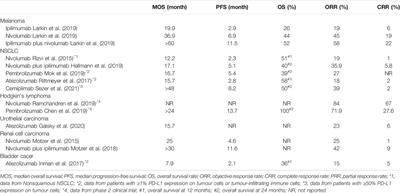EDITORIAL
Published on 26 Oct 2022
Editorial: Non-apoptotic cell death mechanisms and their therapeutic significance
doi 10.3389/fcell.2022.990285
- 1,638 views
11k
Total downloads
30k
Total views and downloads
Select the journal/section where you want your idea to be submitted:
EDITORIAL
Published on 26 Oct 2022
ORIGINAL RESEARCH
Published on 28 Jun 2022

ORIGINAL RESEARCH
Published on 10 Jun 2022

ORIGINAL RESEARCH
Published on 26 May 2022

ORIGINAL RESEARCH
Published on 25 Apr 2022

REVIEW
Published on 24 Mar 2022

ORIGINAL RESEARCH
Published on 03 Mar 2022

ORIGINAL RESEARCH
Published on 24 Feb 2022


Frontiers in Oncology